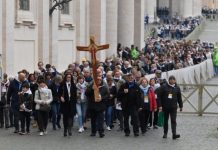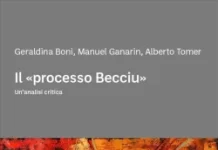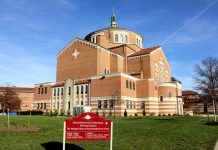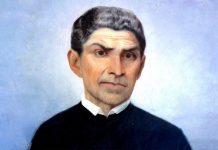The Gospel for the 22nd Sunday in Ordinary Time invites us to empty ourselves of self in order that we may do God’s will.
Newsdesk (05/09/2023 21:52, Gaudium Press) In his Gospel, St. Matthew describes the two times that Jesus refers to St. Peter as a ” rock”. The first time is when the Apostle proclaims the Master’s divinity, and for this reason He calls him “the rock on which He would build His Church” (cf. Mt 16:18); but immediately afterwards, He harshly calls him a “stumbling block” (cf. Mt 16:23), because “you are setting your mind not on divine things but on human things” (Mt 16:23).
What is the significance of these words?
The Wisdom of Men and the Wisdom of God
From that time on, Jesus began to show his disciples that he must go to Jerusalem and undergo great suffering at the hands of the elders and chief priests and scribes, and be killed, and on the third day be raised.” (Mt 16:21).
Throughout their time with Our Lord, the Apostles had the opportunity to witness countless miracles and signs performed by Him, which showed that He was not just an envoy of the Most High or a Prophet, like so many others, but someone essentially united with divinity, in other words, God Himself! St. Peter had just proclaimed that Jesus was the “Messiah, the Son of the living God” (Mt 16:16), and Jesus had taken the opportunity to train His disciples and prepare them for what would happen in the great plan of Salvation: His death and Resurrection.
St Peter, lacking supernatural vision, began to rebuke Jesus with these words:
““God forbid it, Lord! This must never happen to you.”!” (Mt 16:22)
The disciples’ vision of the person of Our Lord, coming from a grace poured out by Himself, but also mixed with a certain worldly conception, did not allow them to understand “the death of the Messiah”.
In fact, if on the one hand grace told them in the depths of their souls that the Man-God should reign and live forever – and, in fact, Jesus lives in His Church through the Sacraments and in the soul of every baptized person in a state of grace – on the other hand, the Apostles’ narrow-minded faith prevented them from conforming their criteria to God’s, so that their minds did not accept certain truths proclaimed by Jesus:
“But He turned and said to Peter, “Get behind me, Satan! You are a stumbling block to me; for you are setting your mind not on divine things but on human things.” (Mt 16:23).
When we read this passage from the Gospel, in which Jesus calls St. Peter a “stumbling block” and “Satan”, our respect and veneration for the first Pontiff seems to be overwhelmed, because we would never address him with such an admonition. Why was Jesus so harsh with His vicar?
Jesus uses such treatment to form His disciples, making it clear that when man doesn’t empty himself entirely, he is unable to adapt to God’s desires, becoming incapable of understanding the role of suffering. Simon Peter “was blessed when the Father revealed Himself to him; but he was ‘Satan’ when he listened to flesh and blood, not knowing what was divine.”[1]
Jesus then states:
“If any want to become my followers, let them deny themselves and take up their cross and follow me” (Mt 16:24)
Suffering seems to be incompatible with human life, since the instinct for self-preservation leads us to reject everything that causes pain and affliction. But the true example was given to us by Our Lord, who, although He was without sin, took our guilt upon Himself, accepting the most atrocious sufferings, as He said: “Father … your will be done” (Mt 26:42).
In this way, He demonstrated the way in which we must empty ourselves of self in order to conform to His will, glorifying Him according to His pleasure.
If on this occasion St. Peter had been able to see Jesus not with the eyes of the flesh, but with the eyes of faith, filled with God and therefore empty of self, he certainly would not have betrayed Him during the Passion.
By Guilherme Motta
[1] Cf. MALDONADO, Juan de. Comentarios a los Cuatro Evangelios. Evangelio de San Mateo. Madrid: BAC, 1950, v. I, p. 601.
Compiled by Roberta MacEwan


































